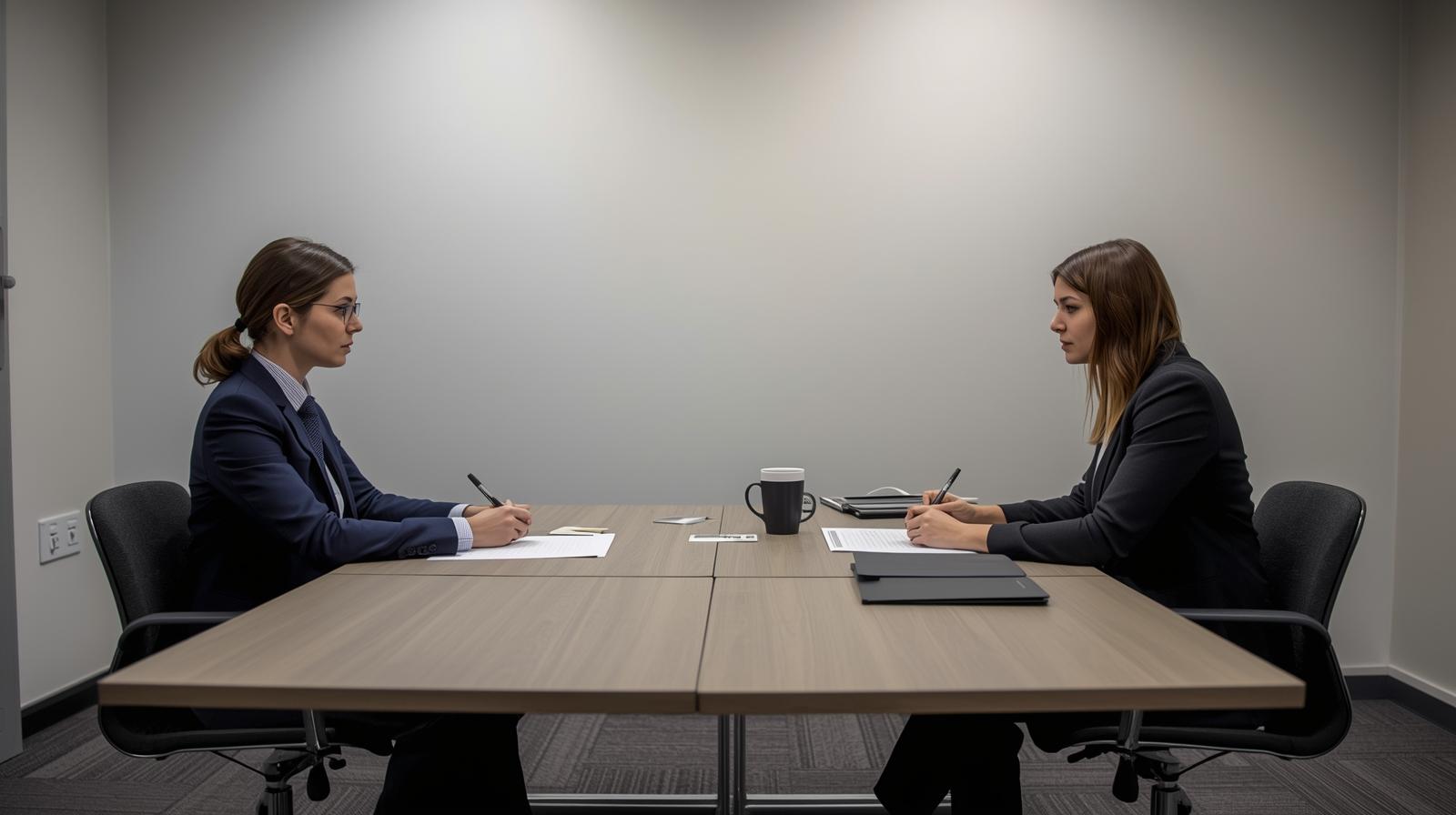Examiner: Good morning. Please have a seat. Can you tell me your full name?
Candidate: Good morning. My name is [Name].
Examiner: Thank you. And can I see your identification, please?
Candidate: Yes, of course. Here you go.
Examiner: Thank you. Now, in this first part, I’d like to ask you some questions about yourself. Let’s talk about bills and payments. What kinds of bills do you have to pay?
Candidate: Well, I have quite a few bills to manage, actually. The biggest one is probably my house mortgage, which takes up a significant chunk of my monthly expenses. Then there are the usual utility bills like electricity and water. I also pay for my phone quota every month. And these days, I’ve got quite a lot of digital subscriptions as well – things like AI services, extra Google Drive storage, streaming platforms like Netflix. It’s interesting how everything’s moved to a subscription model now. It does add up when you think about it!
Examiner: How do you usually pay your bills – in cash or by another method?
Candidate: Oh, I rarely use cash anymore, to be honest. I handle pretty much everything through mobile banking on my phone. It’s just so much more convenient, you know? I can pay bills whenever I have a free moment – during my lunch break or even while I’m commuting. Plus, there’s a digital record of everything, so I can easily track my spending. I think I haven’t paid a bill in cash for at least two or three years now.
Examiner: Have you ever forgotten to pay a bill?
Candidate: Thankfully, no, I haven’t. But I think that’s mainly because these companies are really good at reminding you nowadays! They’ll send notifications through WhatsApp or text messages when the payment’s due, and sometimes even a few days before. So even if I’m busy and it slips my mind, those reminders usually catch me before it becomes a problem. It’s quite helpful, actually.
Examiner: Is there anything you could do to make your bills cheaper?
Candidate: Hmm, honestly, I don’t think so. I mean, I’ve already cut down to what I actually need and use. For things like electricity, I suppose I could be a bit more conscious about turning off lights or unplugging devices, but realistically, the savings would be minimal. And for most of these digital subscriptions, they’re already pretty reasonably priced, and I genuinely use them. So I’d say it’s pretty much beyond my power to reduce them significantly without sacrificing convenience or services I actually need.
Examiner: Now, I’m going to give you a topic and I’d like you to talk about it for one to two minutes. Before you talk, you’ll have one minute to think about what you’re going to say, and you can make some notes if you wish. Do you understand?
Candidate: Yes, I understand.
Examiner: Here’s your topic. I’d like you to describe some food or drink that you learned to prepare.
[Candidate has 1 minute to prepare]
Examiner: Alright, please begin.
Candidate: Right, so I’d like to talk about something that might sound quite simple, but it’s actually really special to me – and that’s Indomie Goreng with sautéed shallots and bird’s eye chilies, or as we call them, rawit chilies.
I learned to make this when I was a teenager, probably around 14 or 15 years old. At that time, I was at home during school holidays, and my older cousin was visiting. She was already living on her own and had become quite good at elevating simple dishes.
The way I learned was actually just by watching her in the kitchen. She showed me that instead of just cooking Indomie the regular way – you know, just boiling the noodles and mixing in the seasoning – you could take it to another level. She taught me to finely slice shallots and bird’s eye chilies, then sauté them in a bit of oil until they were fragrant and slightly caramelized. Then you cook the noodles, drain them, and toss everything together with the seasoning packets. The trick is getting the shallots golden and crispy – that’s what makes all the difference.
At first, I was skeptical because, I mean, Indomie is already delicious on its own, right? But when I tasted what she made, I was genuinely blown away. The sweetness from the caramelized shallots combined with the heat from the fresh chilies just transformed the whole dish. It was so much more complex and flavorful than regular Indomie.
I felt really proud when I managed to recreate it on my own for the first time. It gave me confidence in the kitchen, actually. It showed me that cooking doesn’t have to be complicated – sometimes just adding one or two fresh ingredients and a simple technique can make ordinary food extraordinary. Even now, whenever I make it, it brings back memories of those school holidays and that sense of discovery. It’s become my go-to comfort food when I want something quick but special.
Examiner: Thank you. Do you still make this dish often?
Candidate: Oh yes, definitely! Probably at least once or twice a week, especially when I’m working late and need something quick but satisfying.
Examiner: We’ve been talking about food you learned to prepare, and I’d like to discuss with you one or two more general questions related to this. Let’s consider first of all children and cooking. What kinds of things can children learn to cook?
Candidate: Well, I think children can start with really basic things that don’t involve much heat or sharp objects – things like making sandwiches, mixing salads, or preparing simple fruit platters. As they get a bit older, maybe around eight or nine, they could move on to things like scrambled eggs, simple pasta dishes, or even baking cookies with supervision. The key is starting with tasks that build their confidence without being dangerous. I think making things like smoothies or no-bake desserts is also great because kids get instant results and they can be quite creative with ingredients. It’s really about matching the complexity to their age and skill level.
Examiner: Do you think it’s important for children to learn to cook?
Candidate: Absolutely, I do. I think it’s a fundamental life skill that everyone should have. For one thing, it promotes independence – when children grow up and leave home, they won’t be completely reliant on takeaway food or someone else to feed them. But beyond that, I think cooking teaches so many other valuable skills. It helps with things like following instructions, measuring, time management, and even basic math and science concepts. Plus, there’s research showing that children who learn to cook tend to make healthier food choices because they understand what goes into their meals. So yes, I’d say it’s quite important, both practically and educationally.
Examiner: Do you think young people should learn to cook at home or at school?
Candidate: That’s interesting. I’d say ideally both, because they serve different purposes. At home, cooking is more personal and practical – you’re learning family recipes, cultural dishes, and the everyday cooking that you’ll actually use throughout your life. There’s also that emotional connection and bonding time with parents or grandparents. At school, on the other hand, you get more structured instruction about nutrition, food safety, and perhaps techniques you might not learn at home. School can also expose children to cuisines and ingredients their families might not typically use. So I think the combination of both gives young people a well-rounded culinary education. If I had to choose one though, I’d probably lean toward home, simply because that’s where habits are formed.
Examiner: How enjoyable do you think it would be to work as a professional chef?
Candidate: Hmm, I think that really depends on the person, to be honest. For someone who’s truly passionate about food and thrives under pressure, it could be incredibly rewarding. There’s definitely a creative aspect to it – developing new dishes, experimenting with flavors – and I imagine there’s great satisfaction in seeing people enjoy what you’ve created. However, from what I understand, it’s also incredibly demanding work. The hours are long and unsociable, you’re on your feet all day in a hot kitchen, and the pressure can be intense, especially during busy service times. There’s also the physical toll and the fact that you’re working when most people are relaxing – evenings, weekends, holidays. So while I think there are aspects that would be enjoyable, I suspect the reality is quite tough, and you’d really need to be deeply passionate about it to find it fulfilling long-term.
Examiner: What skills does a person need to be a great chef?
Candidate: Well, obviously technical cooking skills are fundamental – knife skills, understanding different cooking methods, knowing how to balance flavors, that sort of thing. But I think being a great chef requires much more than that. You need creativity and innovation to develop unique dishes that stand out. Leadership and management skills are crucial because you’re typically running a team in a high-pressure environment, so you need to be able to motivate people and manage conflicts. Time management is absolutely critical when you’re coordinating multiple dishes. I’d also say you need resilience and the ability to handle stress, because kitchens can be quite intense environments. And perhaps surprisingly, business acumen is important too, especially if you want to run your own restaurant – understanding costs, suppliers, profit margins. Oh, and I think attention to detail is essential because consistency is what separates good restaurants from great ones.
Examiner: How much influence do celebrity or TV chefs have on what ordinary people cook?
Candidate: I think they have quite a significant influence, actually, though perhaps in different ways than we might expect. On one hand, celebrity chefs have definitely popularized certain ingredients and techniques. For example, when a famous chef uses an ingredient on TV, you’ll often see it selling out in supermarkets the next day. They’ve also made cooking more aspirational and cool, especially for younger generations who might have previously seen it as just a chore. Shows like MasterChef have inspired many people to try more adventurous recipes at home.
However, I’d say there’s also a bit of a disconnect. While people might watch these shows and feel inspired, the recipes celebrity chefs showcase are often quite complex or use expensive ingredients that aren’t practical for everyday cooking. So while they might influence what people want to cook or think they should cook, I’m not sure they dramatically change what people actually cook on a regular Tuesday evening. Most of us still rely on simple, familiar dishes during the week. But perhaps their biggest influence is in changing attitudes – making people more interested in food quality, ingredient sourcing, and cooking as a creative outlet rather than just a necessity. So I’d say their influence is real but perhaps more aspirational than practical.
Examiner: Thank you very much. That is the end of the speaking test.
Candidate: Thank you!


